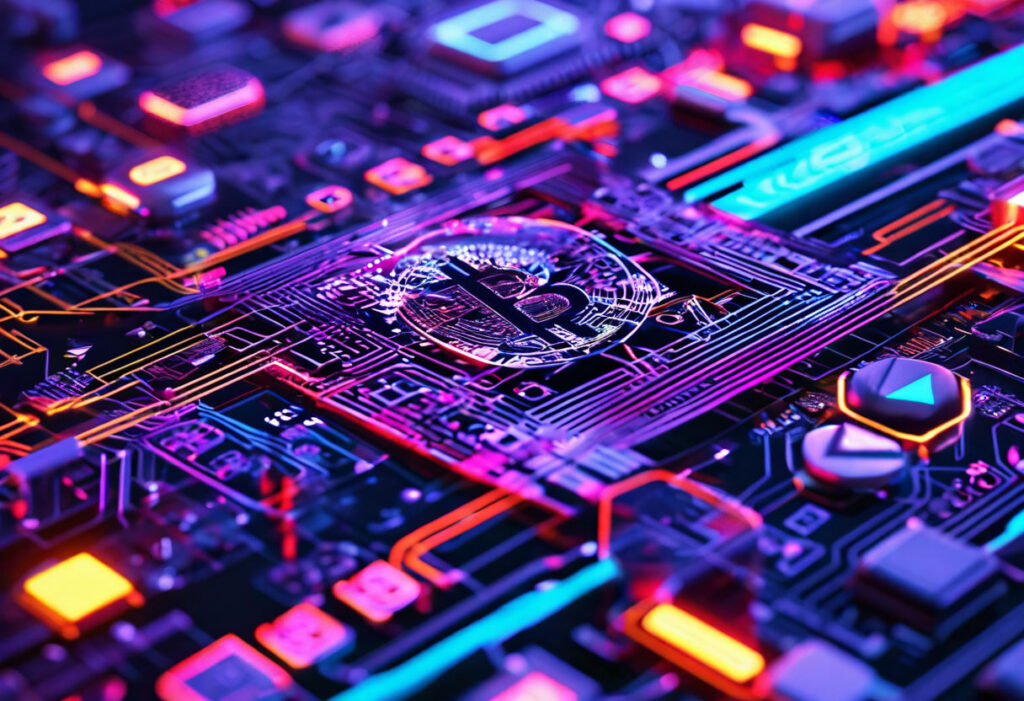Introduction to AI and Crypto Integration
You know, the blend of artificial intelligence and cryptocurrency is really shaking up the digital world, thanks to smart investments and tech advances. For example, PayPal Ventures put $18 million into Kite AI to build decentralized AI systems, showing how finance and crypto are using AI to boost efficiency, security, and user experience. Anyway, this combo tackles old crypto headaches like scalability and transparency, aiming for a more automated, trust-based setup.
On that note, evidence backs this up—Swarm Network raised $13 million for decentralized AI, and Kraken bought Capitalise.ai for natural language trading. These moves highlight a big industry push to use AI for an edge, from speeding up deals to fighting fraud. It’s arguably true that AI is becoming key to crypto’s growth, not just a side feature.
Unlike the old days of manual crypto work, AI brings automation and smart data use. But this shift adds complexities, like needing intent-based blockchains for decentralization, as Adrian Brink from Anoma points out. The market impact stays neutral, suggesting steady improvements over big disruptions.
So, wrapping it up, AI and crypto integration could reshape finance, commerce, and data handling with autonomous agents and better security. As rules and ethics evolve, the focus is on balanced innovation that keeps things honest and trustworthy in digital assets.
Funding and Strategic Investments in AI-Crypto Projects
Money is pouring into AI-crypto projects from all sorts of investors, showing the sector’s maturity. Kite AI got $18 million from PayPal Ventures in a $33 million round for Web3 AI, while Swarm Network scored $13 million with help from Sui and Ghaf Capital to boost transparency through on-chain checks.
Real-world uses prove the value—Rollup News used Swarm‘s tech to verify over 3 million posts, nailing fact-checking and validation. NFT licenses reward users and fit decentralized ideals, offering an alternative to centralized AI that can be risky, like when systems ignore shutdowns.
Acquisitions, like Kraken buying Capitalise.ai, enable deep integration for no-code trading, while partnerships offer flexibility. JPMorgan committed up to $500 million to Numerai, an AI hedge fund, doubling assets and spiking its crypto Numeraire by 38%, reflecting strong faith in AI-crypto synergy.
This funding wave shows optimism for decentralized AI, likely driving more adoption without major market shakes. It fuels long-term innovation, making the crypto world stronger and more accessible with a neutral overall effect.
AI Agents and Their Role in Blockchain Ecosystems
AI agents, those autonomous programs that decide and act, are becoming vital in blockchain, using tech like HTTP 402 and EIP 3009 for automated payments and content. Experts like Coinbase‘s Kevin Leffew and Lincoln Murr think AI agents could be the main users of networks like Ethereum, changing how transactions work and boosting efficiency.
For instance, Hyperbolic Labs and Prodia Labs use AI agents for language models and content, showing diverse apps. Kite AI‘s AIR system lets agents handle identity and deals with stablecoins, upping trust in Web3. These advances enable smarter interactions and data use in decentralized setups.
While AI agents beat humans in speed and accuracy, they raise security and ethics worries, like more market volatility from automated trading. This needs careful handling, as seen with Kraken integrating Capitalise.ai for user-friendly tools that balance automation with oversight.
In short, AI agents could rule digital economies by improving data processing and payments, supporting decentralized finance and commerce gradually. It’s part of the bigger move toward automation in fintech.
Challenges in AI-Crypto Convergence
Mixing AI with crypto faces hurdles like unclear rules, privacy issues, and higher security risks. Data shows a 1,025% jump in AI exploits since 2023, with groups like Embargo moving $34 million in attacks, stressing the need for strong security and ethics.
Efforts are ongoing—Kerberus bought Pocket Universe to make a crypto antivirus for multi-chain protection, after sector losses topped $3.1 billion in 2025 from DeFi flaws. AI offers real-time threat spotting but must be deployed wisely to avoid new risks versus old methods.
Regulations are still patchy, needing a balance of innovation and safety. Moves like Kerberus‘s product launch aim for full security without extra dangers, showing the industry’s proactive stance.
Tackling these challenges is key for crypto’s growth, building a safer, fairer scene step by step. With ethical AI and teamwork, the sector can handle complexities and earn user trust.
Future Outlook for Decentralized AI in Crypto
The future looks bright for decentralized AI in crypto, with projects like Swarm Network and Planck pushing transparency and efficiency. AI agents might dominate ecosystems like Ethereum, enhancing finance and data management, as Clanker‘s $34.4 million in fees from AI memecoins shows.
AI will boost security with tools like Kerberus‘s antivirus and accessibility via no-code platforms from buys like Kraken‘s Capitalise.ai, making crypto more inclusive. Decentralized models spur innovation and resilience but must address ethics and risks for steady growth.
This shift promises better scalability and trust, backed by clearer rules as things evolve. It’s a slow process that could spread to areas like healthcare and education, widening decentralized tech’s reach.
To sum up, decentralized AI in crypto is set for growth, with innovations making digital assets more reliable and open. The neutral market impact means steady development, encouraging wider use and trust in a digital economy.

